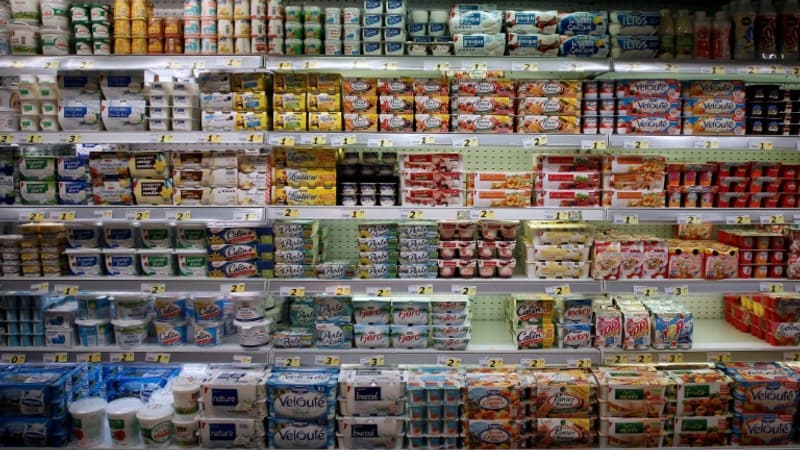The government is raising its voice by calling on food retailers to stop inflicting “logistics sanctions” on their agribusiness suppliers, which are supposed to penalize delivery problems but sometimes serve to generate additional profit.
• What are logistics sanctions?
They are provided for in the contracts that supermarkets sign with their agribusiness suppliers. As part of business negotiations, the two parties agree on the purchase price of a product, but also its delivery terms. If the contract is not respected, these sanctions can be applied. The problem is that they have become “increasingly a source of profit in themselves, and less and less the simple sanction of a breach of contract,” a report by the Senate Economic Affairs Committee estimated this summer.
Il ne s’agit que d’une “indemnité d’un prejudice quand le produit n’est pas livré” à temps ou dans de bonnes conditions, defends itself auprès de l’AFP Jacques Creyssel, delegate general of the CDF, representative of the great distribution. “A product that is not delivered means a break on the shelf, it means lost revenue for the store,” he says.
• What is the problem?
The government believes that some distributors divert these penalties “to restore their financial health” on the backs of suppliers. At the beginning of September, the Complément d’Enquête sur France 2 quoted former retail employees explaining that penalties were imposed when someone delivered “a quarter of an hour late because of traffic jams” or delivered a “non-compliant package”. According to Ania, a professional agri-food organization, these sanctions weighed on average 0.35% of the turnover of a company in the sector in 2021.
The Government considers that these sanctions are all the more damaging for agri-food companies that are facing sharp increases in their production costs in energy, transport, packaging… Manufacturers cannot not pass on these cost increases in full to the prices they They sell their produce to supermarkets.
• What does the government want to do?
The government has asked retailers for a “moratorium” on the practice. On Friday he welcomed the position of German discounters Lidl and Aldi, which “do not apply logistics penalties” to their suppliers, and System U, which has put in place a “sanctions moratorium on SMEs”. But “that is not enough today,” said the government, which is calling for its suspension.
This call is not binding, but “it has been clearly indicated” to the cartels “that due to lack of awareness, other ways and means would be implemented,” said the Ministry of Agriculture, referring to a “French specificity that we would do well without.” The ministry thinks of “a reinforcement of the norms”, even a “prohibition of the practice” when specifying that this last route, however, “was not foreseen as such at the moment”.
• What do distributors think?
“When a promotion is announced and the customer cannot find the product in question, the store is responsible in their eyes,” a spokesperson for Sistema U explains to AFP. But “today we know of small supply problems,” with an abnormally high rate stock-outs, and “a sanctions ban could further reinforce this absence of products,” according to him.
“When we are faced with real justifications, for example on the side of SMEs, with difficulties in finding drivers for example, it is normal” not to impose sanctions, abounds Jacques Creyssel, from the CDF. “But that is what the texts give, there is a very precise framework and that is why we do not see the reason for a generalized moratorium.” Distributors also accuse automakers of taking advantage of inflation to boost their margins.
Asked about this statement, the Government indicated that an “evaluation mission” was commissioned to the General Treasury Inspectorate (IGF) “to find out how the margins of the different players have been affected by inflation.” The report is expected in November.
Source: BFM TV


